Skoda Elroq vs BYD Sealion 7 - Differences and prices compared
Costs and Efficiency:
When it comes to price and running costs, the biggest differences usually appear. This is often where you see which car fits your budget better in the long run.
Skoda Elroq has a significantly advantage in terms of price – it starts at 29100 £, while the BYD Sealion 7 costs 42800 £. That’s a price difference of around 13791 £.
In terms of energy consumption, the advantage goes to the Skoda Elroq: with 15.20 kWh per 100 km, it’s distinct more efficient than the BYD Sealion 7 with 19.90 kWh. That’s a difference of about 4.70 kWh.
As for range, the Skoda Elroq performs slightly better – achieving up to 573 km, about 71 km more than the BYD Sealion 7.
Engine and Performance:
Under the bonnet, it becomes clear which model is tuned for sportiness and which one takes the lead when you hit the accelerator.
When it comes to engine power, the BYD Sealion 7 has a distinct edge – offering 530 HP compared to 340 HP. That’s roughly 190 HP more horsepower.
In acceleration from 0 to 100 km/h, the BYD Sealion 7 is distinct quicker – completing the sprint in 4.50 s, while the Skoda Elroq takes 5.40 s. That’s about 0.90 s faster.
In terms of top speed, the BYD Sealion 7 performs somewhat better – reaching 215 km/h, while the Skoda Elroq tops out at 180 km/h. The difference is around 35 km/h.
There’s also a difference in torque: BYD Sealion 7 pulls minimal stronger with 690 Nm compared to 679 Nm. That’s about 11 Nm difference.
Space and Everyday Use:
Beyond pure performance, interior space and usability matter most in daily life. This is where you see which car is more practical and versatile.
Seats: offers more seating capacity – vs .
In curb weight, Skoda Elroq is to a small extent lighter – 1953 kg compared to 2225 kg. The difference is around 272 kg.
In terms of boot space, the BYD Sealion 7 offers minimal more room – 520 L compared to 470 L. That’s a difference of about 50 L.
In maximum load capacity, the BYD Sealion 7 performs a bit better – up to 1789 L, which is about 209 L more than the Skoda Elroq.
When it comes to payload, Skoda Elroq noticeable takes the win – 531 kg compared to 410 kg. That’s a difference of about 121 kg.
Who comes out on top?
Overall, the BYD Sealion 7 shows itself to be barely ahead and secures the title of DriveDuel Champion.
It convinces with the more balanced overall package and proves to be the more versatile choice for everyday use.
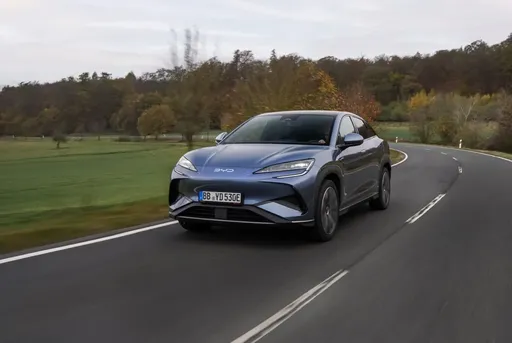 @ BYD Auto / BYD Global Media
@ BYD Auto / BYD Global Media
BYD Sealion 7
Costs and Consumption
View detailed analysis
Engine and Performance
View detailed analysis
Dimensions and Body
View detailed analysis
Skoda Elroq
The Skoda Elroq is a cleverly packaged family SUV that mixes roomy practicality with sharp, modern looks, making it an easy pick for buyers who prefer common sense over flash. On the road it's composed and user-friendly, with thoughtful interior details that turn everyday driving into something pleasantly efficient — a sensible companion with a wink.
details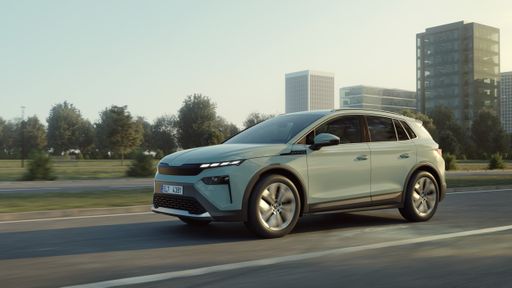 @ Škoda Auto a.s. / Škoda Storyboard
@ Škoda Auto a.s. / Škoda Storyboard
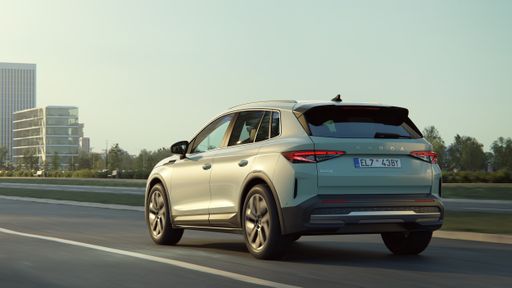 @ Škoda Auto a.s. / Škoda Storyboard
@ Škoda Auto a.s. / Škoda Storyboard
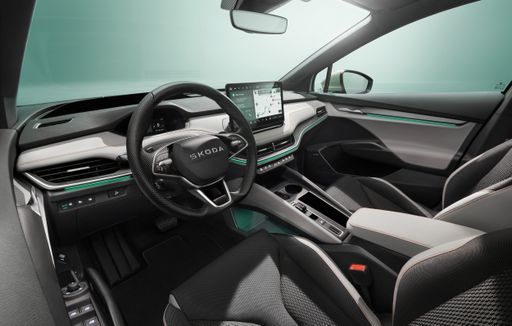 @ Škoda Auto a.s. / Škoda Storyboard
@ Škoda Auto a.s. / Škoda Storyboard
BYD Sealion 7
The Sealion 7 captivates with its striking design and impressive performance that appeals to both enthusiasts and casual drivers alike. With a focus on comfort and advanced technology, this model redefines the driving experience, making every journey enjoyable. Its sleek silhouette coupled with an innovative interior showcases the perfect blend of style and functionality.
details @ BYD Auto / BYD Global Media
@ BYD Auto / BYD Global Media
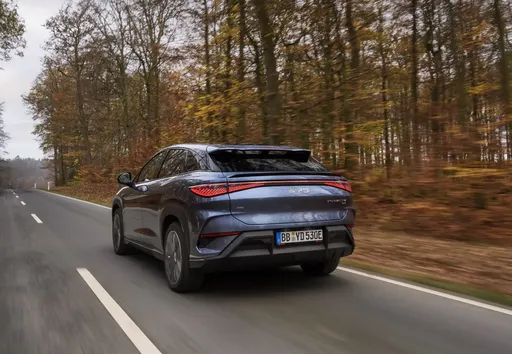 @ BYD Auto / BYD Global Media
@ BYD Auto / BYD Global Media
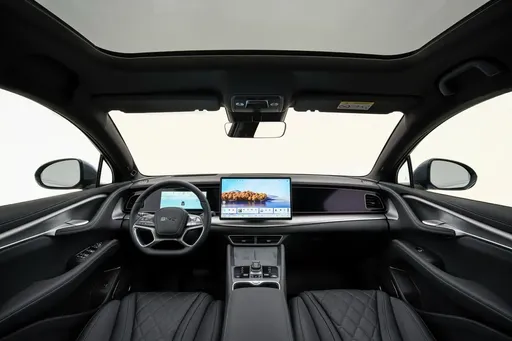 @ BYD Auto / BYD Global Media
@ BYD Auto / BYD Global Media
 @ Škoda Auto a.s. / Škoda Storyboard
@ Škoda Auto a.s. / Škoda Storyboard
|
 @ BYD Auto / BYD Global Media
@ BYD Auto / BYD Global Media
|
|
|
|
Costs and Consumption |
|
|---|---|
|
Price
29100 - 45500 £
|
Price
42800 - 52300 £
|
|
Consumption L/100km
-
|
Consumption L/100km
-
|
|
Consumption kWh/100km
15.2 - 16.5 kWh
|
Consumption kWh/100km
19.9 - 21.9 kWh
|
|
Electric Range
377 - 573 km
|
Electric Range
456 - 502 km
|
|
Battery Capacity
52 - 79 kWh
|
Battery Capacity
-
|
|
co2
0 g/km
|
co2
0 g/km
|
|
Fuel tank capacity
-
|
Fuel tank capacity
-
|
Dimensions and Body |
|
|---|---|
|
Body Type
SUV
|
Body Type
SUV
|
|
Seats
5
|
Seats
5
|
|
Doors
5
|
Doors
4
|
|
Curb weight
1953 - 2268 kg
|
Curb weight
2225 - 2435 kg
|
|
Trunk capacity
470 L
|
Trunk capacity
520 L
|
|
Length
4488 mm
|
Length
4830 mm
|
|
Width
1884 mm
|
Width
1925 mm
|
|
Height
1608 - 1625 mm
|
Height
1620 mm
|
|
Max trunk capacity
1580 L
|
Max trunk capacity
1789 L
|
|
Payload
470 - 531 kg
|
Payload
410 kg
|
Engine and Performance |
|
|---|---|
|
Engine Type
Electric
|
Engine Type
Electric
|
|
Transmission
Automatic
|
Transmission
Automatic
|
|
Transmission Detail
Reduction Gearbox
|
Transmission Detail
Reduction Gearbox
|
|
Drive Type
Rear-Wheel Drive, All-Wheel Drive
|
Drive Type
Rear-Wheel Drive, All-Wheel Drive
|
|
Power HP
170 - 340 HP
|
Power HP
313 - 530 HP
|
|
Acceleration 0-100km/h
5.4 - 9 s
|
Acceleration 0-100km/h
4.5 - 6.7 s
|
|
Max Speed
160 - 180 km/h
|
Max Speed
215 km/h
|
|
Torque
310 - 679 Nm
|
Torque
380 - 690 Nm
|
|
Number of Cylinders
-
|
Number of Cylinders
-
|
|
Power kW
125 - 250 kW
|
Power kW
230 - 390 kW
|
|
Engine capacity
-
|
Engine capacity
-
|
General |
|
|---|---|
|
Model Year
2025
|
Model Year
2024
|
|
CO2 Efficiency Class
A
|
CO2 Efficiency Class
A
|
|
Brand
Skoda
|
Brand
BYD
|
What drive types are available for the Skoda Elroq?
Available configurations include Rear-Wheel Drive or All-Wheel Drive.
The prices and data displayed are estimates based on German list prices and may vary by country. This information is not legally binding.
